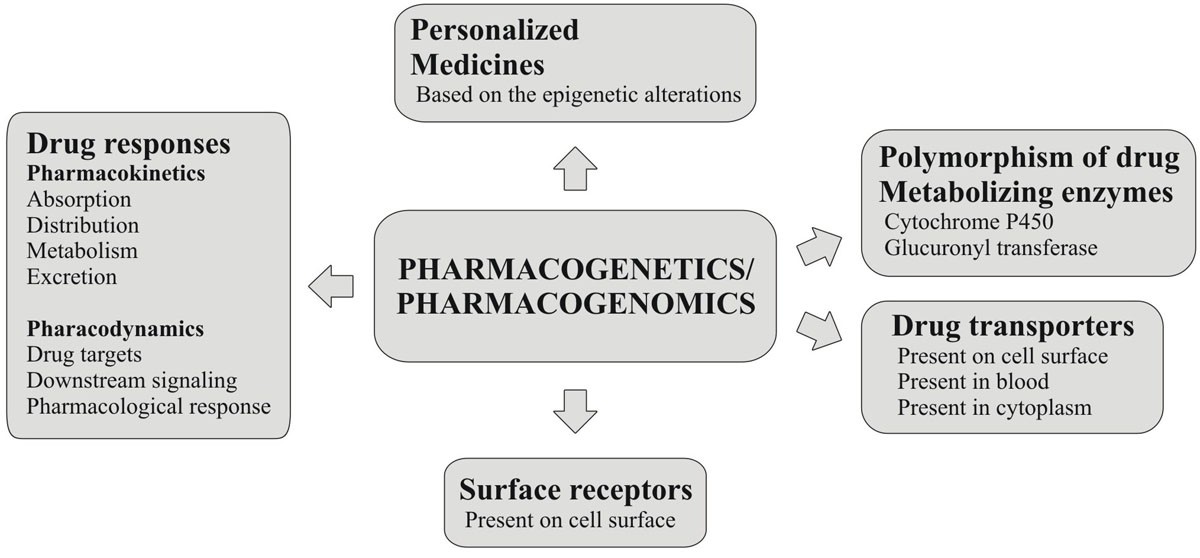HEALTH
Boosting Cognitive Well-Being: Positive Strategies for Memory Care

Introduction to Memory Care Essentials
Memory care is a tailored method aimed at enhancing the quality of life for those dealing with cognitive difficulties like dementia and Alzheimer’s.
This type of care emphasizes the importance of creating a supportive and nurturing environment tailored to the unique needs of each individual. Memory care programs provide a foundation for enhancing the daily lives of those affected by focusing on aspects such as safety, comfort, and familiarity. As communities like memory care in Louisville, KY illustrate, these environments are designed to foster a sense of belonging and security, which are crucial components of adequate care.
Understanding that cognitive challenges can manifest in many forms, memory care adopts a holistic view. This encompasses meeting the urgent demands of physical safety and health and responding to emotional and psychological wellness.
Creating a sense of normalcy and routine helps mitigate anxiety and confusion, enabling individuals to navigate their surroundings confidently.
The Benefits of Memory Therapy Techniques
Memory therapy techniques slow cognitive decline and enrich daily experiences by engaging the brain in stimulating activities. These therapies can include cognitive exercises like puzzles and brainteasers, which challenge the brain and improve mental agility. Additionally, music therapy offers emotional and cognitive benefits by stimulating brain areas related to memory and emotion. Research on cognitive therapies highlights that such interventions effectively enhance cognitive function, fostering mental clarity and focus.
Various studies have shown that reminiscence therapy, where individuals are encouraged to recall and share personal memories, can significantly boost mood and cognitive engagement. This approach not only aids memory retention but also builds social connections as individuals share stories and experiences with others.
Creating a Safe and Supportive Environment
Safety and familiarity are paramount when caring for individuals with cognitive impairments. A carefully designed environment can reduce confusion and enhance cognitive function by minimizing distractions and potential hazards. Personalized spaces with familiar objects and decorations help create a comforting atmosphere that significantly reduces anxiety.
Routine is equally essential, offering a framework that individuals can rely on. A structured daily schedule with consistent meal times, activities, and rest periods establishes a rhythm that aids memory retention. This predictability decreases stress and empowers individuals to engage more meaningfully in daily activities, ultimately enhancing their quality of life.
Roles of Family and Professional Caregivers
Family members and professional caregivers play essential roles in supporting individuals with memory challenges. Family members bring intimate knowledge of the individual’s preferences and history, providing critical emotional support that helps personalize care. Their involvement ensures that the care plan reflects the individual’s personality and past, making the caregiving experience more meaningful.
Professional caregivers, however, add expertise and training in cognitive support techniques. They can implement evidence-based strategies designed to enhance cognitive function and emotional well-being. Working in tandem, family members and professionals can create a balanced, comprehensive care plan that addresses the full spectrum of needs.
Nutrition and Cognitive Health
Maintaining cognitive health relies heavily on a nutritious diet.
Foods high in antioxidants, vitamins, and omega-3 fatty acids are essential for safeguarding brain cells and enhancing cognitive function. Including these nutrients in everyday meals can slow mental decline and improve overall brain health.
Research into the benefits of the DASH diet reveals that diets high in these nutrients—such as berries, leafy greens, nuts, and fish—are linked to improved cognitive performance. Emphasizing nutrient-dense foods supports overall well-being, providing the energy and mental clarity needed to navigate daily activities more independently.
The Impact of Social Interaction
Social engagement is an essential element of memory care. It provides emotional and cognitive advantages that can significantly enhance quality of life.
Regular social engagement through group activities, community events, or casual conversation stimulates mental activity, helping to preserve cognitive function and ward off symptoms of depression and loneliness.
Opportunities for social interaction provide a platform for individuals to form connections, express themselves, and share their experiences. This sense of community can foster belonging and purpose, bringing joy and emotional enrichment to daily life.
Technological Advances in Memory Care
Modern memory care leverages technology to support cognitive function and enhance the living experience for individuals with memory challenges. Digital tools and applications can assist with organization and routine management, making daily tasks more manageable. These technologies facilitate communication and social interaction, connecting individuals with family and friends.
Integrating technology into memory care also includes innovations like virtual reality, which can offer immersive experiences that stimulate the brain and provide mental escapism. As technology evolves, it plays a crucial role in advancing memory care and offering new opportunities for engagement and support.
Future Directions for Memory Care
The field of memory care is ever-evolving, with ongoing research pushing the boundaries of understanding and treatment. Innovations in therapy techniques, nutritional protocols, and technology pave the way for enhanced care methods that promise to improve the quality of individuals with cognitive impairments.
Memory care practices will adapt and grow as we continue to learn more about the brain and the processes involved in memory. This knowledge and innovation constitute a beacon of hope, offering new ways to support and enrich the lives of those affected by memory challenges, their families, and caregivers.
HEALTH
Navigating Alzheimer’s: Essential Resources for Caregivers and Families

Alzheimer’s disease presents a myriad of challenges for patients and their loved ones, navigating the complex terrain of long-term care, emotional support, and financial management. It requires a comprehensive understanding of the disease, a thorough knowledge of available resources, and significant emotional resilience. As caregivers and families confront these difficulties, it’s essential to have access to reliable information that guides decision-making and provides reassurance during these trying times. Below, we outline critical aspects of Alzheimer’s care to assist caregivers and families in managing this journey effectively.
Understanding Alzheimer’s Disease: A Guide for Caregivers and Families

Alzheimer’s disease is a progressive neurological disorder that impairs memory, cognitive function, and the ability to perform everyday activities. It’s the most common form of dementia, affecting millions of people worldwide. As the condition advances, patients may experience a significant decline in communication skills, undergo personality changes, and require constant care.
Caregivers and families must prioritize education on Alzheimer’s to effectively respond to these changes. Understanding the stages of the disease allows for proper planning and the implementation of suitable care strategies. It’s critical to recognize the symptoms early on to seek professional medical advice and establish a care plan that accommodates the patient’s evolving needs.
Organizations like the Alzheimer’s Association provide a wealth of information on the disease, offering resources to help families and caregivers understand Alzheimer’s better. They also suggest coping mechanisms and interventions that can improve the quality of life for both patients and caregivers throughout the progression of the illness.
Coping Strategies for Alzheimer’s Caregivers
Alzheimer’s caregivers often face significant emotional and physical stress. Developing coping strategies to manage the demands of caregiving is imperative for maintaining their health and well-being. Learning about the disease, joining support groups, and setting realistic goals can help caregivers manage their expectations and foster a sense of control.
Respite care services can provide caregivers with a much-needed break, ensuring they have time to rest and recharge. Establishing a routine for the patient can also reduce anxiety and confusion, creating a stable environment that benefits both the caregiver and the patient.
Self-care should be a priority for caregivers. Engaging in regular exercise, maintaining a healthy diet, and seeking mental health support can prevent burnout. Friends, family, and community resources can be invaluable in offering assistance and emotional support.
Legal and Financial Planning for Alzheimer’s Families
Early legal and financial planning is fundamental upon an Alzheimer’s diagnosis. Families should consult legal professionals who specialize in elder law to prepare necessary documents such as powers of attorney, wills, and health care directives. These measures ensure the person with Alzheimer’s wishes are respected and decisions are made in their best interest.
Financial planning is equally important to manage the high costs associated with long-term Alzheimer’s care. Creating a financial strategy that accounts for current savings, potential benefits, and anticipated costs can help alleviate future financial strain. Professional financial advisors can pinpoint strategies to preserve family assets while ensuring the patient receives the necessary care.
Benefit programs should be explored in depth, such as Social Security Disability Insurance (SSDI) for patients who are under retirement age, or Veterans’ benefits if applicable. Being proactive and familiarizing oneself with these programs helps secure the necessary resources without unnecessary delays.
Community Resources and Support Networks for Alzheimer’s Care

Connecting with community resources and support networks can be the lifeline that caregivers need. Local Alzheimer’s associations often offer workshops, support groups, and educational materials. These networks not only provide practical advice but also a sense of camaraderie among individuals facing similar challenges.
Area Agencies on Aging and community centers can also provide valuable services such as adult day care, transportation assistance, and meal programs. Taking advantage of these resources reduces the isolation that many Alzheimer’s caregivers experience and introduces new sources of help and encouragement.
Online forums and social media groups are increasingly popular among caregivers seeking advice and empathy from peers across the globe. Sharing experiences and solutions online can lead to innovative caregiving strategies and emotional relief.
Altogether, confronting Alzheimer’s disease demands a multi-faceted approach that includes education, healthcare navigation, emotional coping strategies, legal and financial preparations, and community support. These pillars of Alzheimer’s care provide the guidance and resources necessary for families to face the challenges of dementia with strength and resilience.
HEALTH
Spectrum Multivitamin: Nutrition for Child Development

As parents, making sure our children get the right nutrients for their growth and development is a top priority. Multivitamins play a crucial role in filling nutritional gaps, especially for picky eaters or those with dietary restrictions. Spectrum multivitamin is designed to provide essential nutrients that support a child’s overall development, making it a helpful part of their daily routine.
The spectrum multivitamin is full of different vitamins and minerals that are essential for children’s health. These nutrients help with growth, boost the immune system, and improve brain function. In the sections that follow, we will explore the unique benefits of spectrum multivitamin for kids, the role of spectrum vitamins and minerals, and how to choose the right multivitamin for your child.
Why Choose Spectrum Multivitamin for Kids?
Choosing the right multivitamin for your child can be overwhelming, but spectrum multivitamin has several benefits that make it a great choice:
- Tailored for Children: Spectrum multivitamins are specifically formulated to meet the nutritional needs of growing children, ensuring they receive the right balance of vitamins and minerals.
- Supports Growth and Development: These multivitamins contain essential nutrients like calcium, vitamin D, and iron, which are crucial for bone health and cognitive development.
- Boosts Immune System: With vitamins like C and E, spectrum multivitamins help strengthen the immune system, keeping children healthier and more resilient to common illnesses.
According to WebMD, multivitamins can fill nutritional gaps and provide a safety net for essential nutrients that might be missing from a child’s diet. This is particularly important during growth spurts when their nutritional needs are higher.
Understanding Spectrum Vitamins and Minerals
Spectrum vitamins and minerals are important parts of a balanced diet, especially for children. These nutrients help with body functions and overall health. Spectrum vitamins include a wide range of vitamins such as A, B, C, D, and E, each contributing to different aspects of health. Minerals like calcium, iron, and magnesium are equally important, aiding in bone development, oxygen transportation, and energy production.
For children, having a diet rich in these vitamins and minerals is important for their growth. According to Harvard’s Nutrition Source, these nutrients help in building strong bones, boosting the immune system, and supporting brain development. Ensuring that children receive the right amount of spectrum vitamins and minerals can make a significant difference in their health and development.
Simple Spectrum Multivitamin: A Comprehensive Solution
The simple spectrum multivitamin provides a full solution for children’s nutrition needs. It is made to give a balanced mix of important vitamins and minerals just for kids. This formulation ensures that children receive the nutrients they need for optimal growth and development.
Some of the features that set the simple spectrum multivitamin apart include:
- Balanced Nutrient Profile: It contains a well-rounded mix of vitamins and minerals that cater to the specific needs of children.
- Easy to Digest: Formulated to be gentle on the stomach, making it suitable for daily use.
- Supports Overall Health: Helps in boosting immunity, enhancing cognitive function, and promoting strong bones.
Choosing a simple spectrum multivitamin can be a great step towards ensuring that your child receives all the essential nutrients they need in their formative years, setting a foundation for a healthy future. For more information on these supplements, you can visit Simple Spectrum Supplement’s FAQ page.
Full Spectrum Vitamins and Support: Meeting All Nutritional Needs
When it comes to ensuring your child receives all the essential nutrients, full spectrum vitamins and spectrum support vitamins play an important role. These vitamins are designed to provide a comprehensive nutritional profile that supports overall health and well-being for children.
Here’s why full spectrum vitamins help:
- Comprehensive Nutritional Profile: Full spectrum vitamins cover a wide range of nutrients, ensuring that children receive all the essential vitamins and minerals they need for healthy development.
- Enhanced Health and Well-being: These vitamins support various bodily functions, from boosting the immune system to promoting strong bones and teeth.
- Balanced Diet Support: They help fill any nutritional gaps that might exist in a child’s diet, ensuring balanced growth.
Specific vitamins, such as vitamin D, calcium, and iron, are particularly important for child development. Full spectrum vitamins ensure these are adequately included, supporting everything from brain development to energy levels.
Choosing the Right Spectrum Needs Multivitamin
Finding the right spectrum needs multivitamin for your child can be a tough task. But with the right help, you can make a smart choice for your child’s health.
Here are some tips to consider when selecting a multivitamin:
- Check the Label: Ensure the multivitamin provides a comprehensive range of vitamins and minerals suitable for your child’s age.
- Consult a Healthcare Professional: Speak with a pediatrician or a nutritionist to understand your child’s specific nutritional needs.
- Look for Quality: Choose multivitamins from reputable brands that adhere to high manufacturing standards.
- Consider Dietary Restrictions: If your child has any allergies or dietary restrictions, ensure the multivitamin is free from allergens or unwanted ingredients.
For more information on choosing the right multivitamin, you can refer to resources like WebMD’s guide on selecting multivitamins.
The Benefits of Simple Spectrum Vitamin Supplement
Today, making sure children get all the nutrients they need can be hard. This is where a simple spectrum vitamin supplement can make a significant difference. Here are some benefits:
- Fills Nutritional Gaps: Even with a balanced diet, children may miss out on essential nutrients. A simple spectrum vitamin supplement can help bridge these gaps, ensuring they receive a comprehensive range of vitamins and minerals.
- Supports Growth and Development: These supplements are formulated to support the physical and mental development of children, promoting healthy growth.
- Easy to Incorporate: Simple spectrum vitamin supplements are designed to be easy for children to take, whether in chewable form or as a liquid, making them a convenient addition to daily routines.
- Boosts Immune System: By providing essential nutrients, these supplements can help strengthen the immune system, keeping children healthier and more resilient.
Final Thoughts: The Importance of Spectrum Multivitamin
In summary, spectrum multivitamins provide a full solution to help your child’s health, growth, and development. By incorporating these into their daily routine, you can help ensure they receive the nutrients they need to thrive. They give all the important nutrients that can be hard to get from just food. They support both physical growth and cognitive development, crucial during childhood, and help maintain a balanced diet, which is vital for long-term health.
As parents, it’s important to consider the nutritional needs of your children carefully. By integrating spectrum multivitamins, you can support their development and set them on a path to a healthier future.
HEALTH
Personalized Medicine: The Role of Pharmacokinetics

Personalized Medicine in Modern Healthcare
Personalized medicine is a crucial aspect of modern healthcare. It utilizes personal data to create tailored treatment programs for each patient. This strategy deviates from the conventional “one-size-fits-all” approach by considering environmental, lifestyle, and hereditary factors to enhance therapeutic results and reduce potential adverse effects.
One critical component of this approach is clinical Pharmacokinetics New York, which examines how a drug moves through the body, predicting its absorption, distribution, metabolism, and excretion. Personalized medicine, a powerful tool in combating diseases worldwide, aims to improve efficacy, reduce unnecessary treatments, and enhance patient quality of life by tailoring drug regimens according to individual differences. Further insights can be gained from resources like the NIH’s comprehensive exploration of personalized medicine.
Understanding Pharmacokinetics
Pharmacokinetics, the study of how drugs are processed in the body, is fundamental to personalized therapy. It encompasses several critical processes: absorption, which determines how a drug is taken up into the bloodstream; distribution, which indicates how the drug spreads throughout the body’s tissues; metabolism, which transforms the drug into active or inactive substances; and excretion, which outlines how a drug or its metabolites are eliminated from the body.
By comprehending these processes, healthcare providers can predict how different patients will respond to medications, which is essential for tailoring drug choices and dosing. For instance, individuals may metabolize a drug at varying rates due to genetic differences. Recognizing these variations can prevent adverse reactions and improve therapeutic effectiveness. This accuracy ensures that patients receive the finest care possible. Further reading on the importance of pharmacokinetics can be found in the FDA’s detailed guide on pharmacokinetics and pharmacodynamics basics.
The Role of Pharmacogenomics
Pharmacogenomics is integral to personalized medicine, focusing on how genetic variation affects individual drug responses. By understanding genetic differences, healthcare providers can predict how well patients will respond to a particular medication or whether they might suffer adverse effects. This information makes it possible to create customized treatments considering metabolic and genetic variables affecting medication safety and effectiveness.
Pharmacogenomics has been successfully applied in various fields, such as oncology, where genetic testing helps determine the most effective chemotherapy regimen. In cardiology, genetic tests help identify the best anticoagulant therapy for individual patients. These applications underscore the transformative potential of integrating pharmacogenomics with pharmacokinetics, paving the way for safer, more effective personalized therapies.
Current Challenges and Limitations
Despite personalized medicine’s potential, several barriers remain. The cost of developing and administering tailored therapies can be prohibitive, placing financial strain on healthcare systems and patients. Furthermore, the complexity of interpreting genetic data requires specialized knowledge and resources, limiting widespread implementation.
Moreover, ethical and regulatory challenges must be addressed, particularly concerning the privacy and security of genetic data. Patients and providers express concerns about how this sensitive information is used and shared. Balancing these concerns with the benefits of personalized medicine is crucial for its successful incorporation into routine healthcare practice.
Innovations Driving Change
Technological advancements are fueling the progression of personalized medicine. Innovations in drug monitoring and delivery systems enable more precise control of medication regimens, allowing for real-time adjustments based on patient responses. Artificial intelligence and machine learning are also increasingly used to improve treatment plans, predict how patients react to medications, and improve healthcare outcomes.
These technologies offer the potential to make personalized medicine more accessible and practical, streamlining the process of developing and delivering individualized treatment plans. As these innovations continue to evolve, they are expected to play a critical role in the widespread adoption and success of personalized medicine.
Implications for Patients and Healthcare Providers
The rise of personalized medicine empowers patients by involving them more actively in their healthcare decisions. By tailoring treatments to individual needs, customized medicine encourages greater adherence to medication protocols and enhances patient engagement. When patients comprehend how their treatment programs address their unique problems and concerns, they are likelier to stick with them.
For healthcare providers, adopting personalized medicine necessitates updates in practice guidelines and ongoing education to ensure competency in genetic testing and data interpretation. This shift requires a collaborative approach, with healthcare teams working together to integrate new treatment models effectively.
The Future of Personalized Medicine
Personalized medicine can drastically change the healthcare industry as it develops. Future trends suggest a shift from broad-spectrum therapies to more targeted drug development, focusing on each patient’s unique biological characteristics.
Policy changes and increased investment in genetic research and technology will likely be necessary to support these advances. By ensuring fair access to individualized healthcare, such policies will promote a more effective and inclusive healthcare system that meets the various requirements of people worldwide.
Conclusion
In summary, personalized medicine, driven by the intricate science of pharmacokinetics, holds immense potential for improving patient care. Despite obstacles, this strategy’s continued advancement and use portends a new age in individualized care, providing hope for improved global health outcomes and a more adaptable healthcare system.
-

 BLOG12 months ago
BLOG12 months agoIZoneMedia360 .Com: Exploring the Features and Benefits
-

 BLOG1 year ago
BLOG1 year agoAbout Blog TurboGeekOrg: A Go-To Hub for Tech Enthusiasts and Latest Innovations
-

 BLOG1 year ago
BLOG1 year agoWhat is a Golden Transit in Magi Astrology?
-

 NEWS11 months ago
NEWS11 months agoChloe Berger News: Insights on Employee Rights and Talent Retention
-

 BLOG12 months ago
BLOG12 months agoA Complete Guide to ProcurementNation.com Shipping
-

 ENTERTAINMENT1 year ago
ENTERTAINMENT1 year agoTyquaez Pickett: A Rising Star in the Entertainment World
-

 BLOG1 year ago
BLOG1 year agoWho Is Hall Sinclair? The True Story of Olivia Colman’s Son
-

 NEWS12 months ago
NEWS12 months agoThe Vision and Innovation of News Theamericansecretscom
